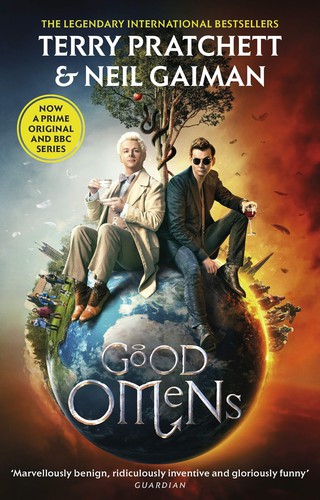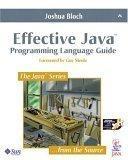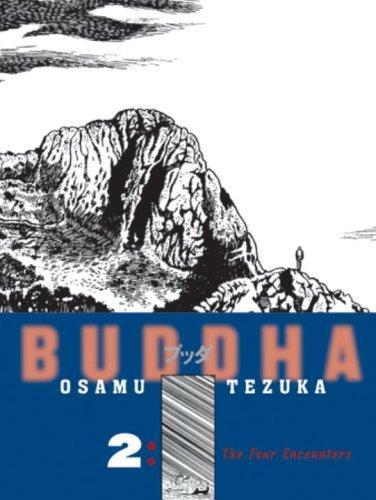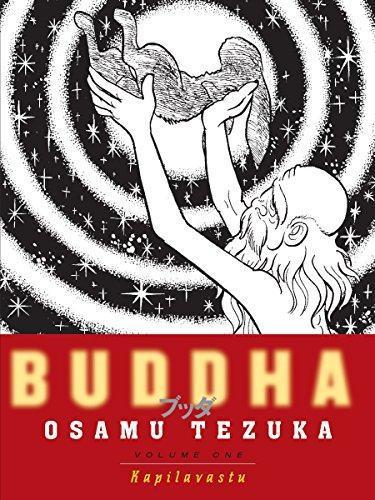This book is tiny but insanely dense. If a person reads it in earnest, by the time one reaches the back cover they will know Pāli.
Don't be mistaken. This is a textbook and it is very boring. But it doesn't waste any time teaching you vocabulary and grammar in a systematic way that builds to the totality of the language by the end.
It's pretty neat how Pāli grammar seems to reflect Tamil while the vocabulary reflects Hindi and Sanskrit. I wish I knew one of these languages as a basis for comparison.
Reviews and Comments
I struggle to read fiction.
This link opens in a pop-up window
Steven Deobald reviewed Pāli primer by Lily De Silva
Pali language grammar.
Review of 'Pāli primer' on 'Goodreads'
5 stars
Steven Deobald reviewed Romtha by Mahāśvetā Debī
Review of 'Romtha' on 'Goodreads'
5 stars
It's hard to believe this is a translation... makes me really sad I can't read it in the original Bengali. It's more of a novel-sized poem. Staggeringly beautiful despite its being a story about a disgusting and inhumane practice. Mahasweta Devi is a real weirdo. I can't wait to find more of her work.
Steven Deobald reviewed Why We Sleep by Matthew Walker
Review of 'Why We Sleep' on 'Goodreads'
1 star
I should have known better than to read a book with ", PhD" behind the author's name.
1.5 stars. There are a few interesting bits of information in here but I doubt you'll come across anything you don't already know until chapter thirteen.
This book has many other troubles. Walker's understanding of basic neuroscience is simply incorrect. No, the brain and the mind are not ontological equivalents according to modern neuroscience. His writing is exhausting. He is loud and passionate, arrogant and condescending, repetitive and boring. Imagine watching twenty poorly researched TED talks, delivered with viscous gravitas, one after another. Matthew Walker, PhD, feels the need to constantly remind the reader that he is a scientist — with his own sleep laboratory! — and that he is doing science at his laboratory in the University of California, Berkeley and that he is a scientist and that science says that sleep …
I should have known better than to read a book with ", PhD" behind the author's name.
1.5 stars. There are a few interesting bits of information in here but I doubt you'll come across anything you don't already know until chapter thirteen.
This book has many other troubles. Walker's understanding of basic neuroscience is simply incorrect. No, the brain and the mind are not ontological equivalents according to modern neuroscience. His writing is exhausting. He is loud and passionate, arrogant and condescending, repetitive and boring. Imagine watching twenty poorly researched TED talks, delivered with viscous gravitas, one after another. Matthew Walker, PhD, feels the need to constantly remind the reader that he is a scientist — with his own sleep laboratory! — and that he is doing science at his laboratory in the University of California, Berkeley and that he is a scientist and that science says that sleep is the centre of the human experience and that he is a scientist. However, despite his employment as a scientist, he lacks proper references, endnotes, or even correct footnotes. His grammar and sentence construction are atrocious.
This book could have been an A4 PDF infographic. Despite reading the paperback I felt like I was on Twitter or Reddit from beginning to end, steeped in pop science hyperbole, so perhaps an infographic it should have been.
Steven Deobald rated Three-Body Problem Series: 5 stars
Steven Deobald rated Born a Crime: 4 stars

Born a Crime by Trevor Noah
Trevor Noah’s path from apartheid South Africa to the desk of The Daily Show in New York began with a …
Steven Deobald rated Effective Java: 5 stars
Review of "Why I'm No Longer Talking to White People About Race" on 'Goodreads'
4 stars
Every white person should read this book.
The title is misleading. The quotes from newspapers and magazines on the back cover are misleading. Reni Eddo-Lodge tells us early on that "Since I set my boundary, I've done almost nothing but speak about race" and she does so with a voice worth listening to. She approaches a complex subject intelligently and articulately, never throwing the reader under an emotional bus or setting you up for a cheap knock-out punch. My printing of the book is tattooed in descriptions like "A WAKE-UP CALL" and "A REVELATION" — I would never use any of these words to describe it. At no point in this book will you feel anything remotely like the overwhelmingly saccharine self-satisfaction one gets from watching a movie like BlacKkKlansman.
Instead, Eddo-Lodge splits her time between the subtle, implicit nature of the ubiquitous structural racism in Britain and the …
Every white person should read this book.
The title is misleading. The quotes from newspapers and magazines on the back cover are misleading. Reni Eddo-Lodge tells us early on that "Since I set my boundary, I've done almost nothing but speak about race" and she does so with a voice worth listening to. She approaches a complex subject intelligently and articulately, never throwing the reader under an emotional bus or setting you up for a cheap knock-out punch. My printing of the book is tattooed in descriptions like "A WAKE-UP CALL" and "A REVELATION" — I would never use any of these words to describe it. At no point in this book will you feel anything remotely like the overwhelmingly saccharine self-satisfaction one gets from watching a movie like BlacKkKlansman.
Instead, Eddo-Lodge splits her time between the subtle, implicit nature of the ubiquitous structural racism in Britain and the not-so-subtle world of encoding racism into modern British culture. At no point is the book indulgent nor at any point did I feel "beaten up" reading it (as a white person). The book acts as a dense, British microcosm for structural racial inequality the world over, with practical and actionable advice for everyone reading it in its penultimate chapter.
I say "every white person should read this book" not because I think it will provide some sort of epiphany. Quite to the contrary, it's most likely that by the time someone has both discovered the book and decided to read it in earnest, they will already know most of what the book says. However, I have never seen it said all in one place before. Anecdotes and ideas trickle into our consciousness from small journal articles and social media posts. Over time, they help build self-awareness and restructure our understanding of society. But a book means the author has your undivided attention and for much of what Eddo-Lodge is saying that's actually quite necessary. Pouring over this book gives the reader more than a few moments of self-observation and 250 pages to simply shut up and listen.
I am excited to see where this will lead. After seven years in India, I look forward to a Dalit woman writing the equivalent book for a comparable microcosm here. In a country where maids are still forced to use separate bathrooms and are not allowed to use the lift, this as-yet-undiscovered Dalit woman won't have the benefit of written history or statistics — which is why this story needs to be told so many times over in so many countries and why we so desperately need to hear it. I sincerely hope Why I'm No Longer Talking to White People About Race is the first in a long line of such literature.
Steven Deobald reviewed Gut by Giulia Enders
Review of 'Gut' on 'Goodreads'
4 stars
A brilliant book which deserves both a space in every middle-school Biology (or Health) classroom and every adult's bookshelf. Enders seamlessly weaves together a fun story, complete with cute illustrations, about the journey of food through our entire system. Along the way, she touches on contemporary scientific revelations about our microbiome and reveals the structures and behaviours of our innards in colourful detail reminiscent of no other book I've read. While she's making our inner biology a fun topic for dinner parties, she periodically drops in some reminders backed by unconventional reasoning.
Every page evoked a response from me. Sometimes she left me craving broccoli or fresh, homemade yogurt. Sometimes she'd leave me dumbfounded by collecting adjacent scientific research into a neat pile that defends what many of us know intuitively about our overall health based on the foods we eat. And sometimes she'd refresh the most basic behaviours of …
A brilliant book which deserves both a space in every middle-school Biology (or Health) classroom and every adult's bookshelf. Enders seamlessly weaves together a fun story, complete with cute illustrations, about the journey of food through our entire system. Along the way, she touches on contemporary scientific revelations about our microbiome and reveals the structures and behaviours of our innards in colourful detail reminiscent of no other book I've read. While she's making our inner biology a fun topic for dinner parties, she periodically drops in some reminders backed by unconventional reasoning.
Every page evoked a response from me. Sometimes she left me craving broccoli or fresh, homemade yogurt. Sometimes she'd leave me dumbfounded by collecting adjacent scientific research into a neat pile that defends what many of us know intuitively about our overall health based on the foods we eat. And sometimes she'd refresh the most basic behaviours of civilized society with new (or forgotten) information: brush your teeth, eat your veggies, talk to your doctor, get enough exercise and sleep every day.
Based on the reviews, I had expected Gut to be a fun read. I hadn't expected it to make me so excited about improving my own health. It doesn't hurt that Enders write with so much excitement and enthusiasm for her field.
The writing does lag a little in places and it would be hard for this book to break into 5-star territory for me. My one HUGE gripe, however, is that her references aren't cited! Uggghhh. Just because a book is intended for a casual audience does not make it okay to drop a comment like "five recent studies have shown" into the book without explicitly referencing all five of those studies. I sincerely hope she adds endnotes in a future edition.
Steven Deobald reviewed Nothing Special by Charlotte J. Beck
Review of 'Nothing Special' on 'Goodreads'
4 stars
This is a surprisingly penetrating book on meditation. I read it immediately following my most intense (and most difficult) 10-day vipassana course and it was precisely what I needed to make sense of my experiences from that retreat.
Beck's writing is very accessible but she drops some not-so-subtle cues to her expectations of meditators who consider themselves "experienced": 15 to 20 years of daily practice. Her understanding of Zazen is more thorough and practical than many other Zen books I've read, noting that at some point a practitioner is "doing zazen all the time." Concepts such as 24-hour meditation and her allegory of repeatedly returning to the locked door in her attic are easy to process intellectually but won't mean much to someone who doesn't have a daily practice yet.
Given Beck's wit and character, I would find it hard to recommend someone wait until she has a serious meditation …
This is a surprisingly penetrating book on meditation. I read it immediately following my most intense (and most difficult) 10-day vipassana course and it was precisely what I needed to make sense of my experiences from that retreat.
Beck's writing is very accessible but she drops some not-so-subtle cues to her expectations of meditators who consider themselves "experienced": 15 to 20 years of daily practice. Her understanding of Zazen is more thorough and practical than many other Zen books I've read, noting that at some point a practitioner is "doing zazen all the time." Concepts such as 24-hour meditation and her allegory of repeatedly returning to the locked door in her attic are easy to process intellectually but won't mean much to someone who doesn't have a daily practice yet.
Given Beck's wit and character, I would find it hard to recommend someone wait until she has a serious meditation practice before reading Nothing Special, but I would perhaps recommend that the book is worth a re-read after one's first Zazen Sesshin or 10-Day Vipassana Course.












